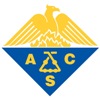- Chemical Toxicology
- Study of toxic effects of chemicals on living organisms.
- Clinical Pharmacology
- Study dealing with drugs and their clinical use.
- Pharmacological Formulation
- The process of combining different chemical substances to form a final medicinal product.
- Drug Delivery Systems
- The path, approach, and transport of drugs to reach the biological target.
- Drug Development
- The process of developing new pharmaceutical drug for the identified lead compound.
- Clinical Trial Designing
- The trial, experimental, and observational studies in medical, clinical, and other researches.
- Toxicology
- The branch of science concerned with the nature, effects, and detection of poisons and toxins.
- Dosage Forms
- Mixing of appropriate doses of drug products in particular configuration to form drugs.
- Drug Metabolism
- The metabolic breakdown of drugs by body enzymes.
- Drug Regulations
- Regulating the drug usage according to the regulatory authorities.
- Drug Targeting
- The process of delivering the drugs by targeting the specific human parts.
- Biopharmaceutics
- Study dealing with physical, chemical properties, and biological effects of drugs.
- Molecular Pharmacology
- Study focusing on biochemical and biophysical characteristics of drugs at molecular level.
- Pharmacological Therapeutics
- Usage of drugs and their administration in treatment of diseases.
- Immunopharmacology
- Study dealing with the interaction of drugs with immune system and implementation of immunological techniques in drug development.
- Environmental Pharmacology
- Pharmacological study dealing with the chemical and toxic entries into the environment from humans in many forms.
- Analytical Toxicology
- The process of detecting, identifying, and measuring toxic compounds in biological and other specimens.
- Genetic Toxicology
- Study of toxic effects in genetic system.
- Clinical Toxicology
- The clinical studies, trials, and experiments on toxic effects due to several factors.
- Molecular Toxicology
- Study of toxic effects at molecular level due to various chemical components.
- Applied Toxicology
- The process of applying advanced principles and procedures to determine various toxic effects.
- Computational Toxicology
- Development of mathematical and computer-based models to determine the toxic effects by different factors.
- Drug Toxicity
- The specified toxic nature of drugs according to diagnostic techniques.
- Industrial Toxicology
- The study of examining the toxic effects from industrial wastes.
- Clinical &Experimental Pharmacology
- The study of clinical effects of toxic substances through experiments.
- Clinical Pharmacology &Biopharmaceutics
- The study of the chemical and physical properties of drugs and the biological effects they produce.
- Drug Metabolism &Toxicology
- The process drug undergoes to reduce the toxic effects as per the human body.
- Immunotoxicology
- ITOX is the study of immune dysfunctionresulting from exposure of an organism to a xenobiotic.
- Toxinology
- The studydealing with animal, plant, and microbial toxins.
- Toxicokinetics
- The process of generating pharmacokinetic data according to the toxicity to assess systemic exposure.
- Toxicodynamics
- The study dealing with the dynamic interactions of a toxicant with a biological target.
- All submissions will undergo vigorous peer review process.
- High quality review process.
- Permanent published archives.
- Author loyal benefits.
- Reviewer credits.
- Visible specified citations.
- Open access - Maximum dissemination.
- Un-interrupted author communication.
- Standard author guidelines.
- Minimal publication charges with convenient and safe modes of transfer.
Special Issue:
Enliven Archive efforts to segregate the research content in most efficient way that shall reach readers without much effort. In this stance, journals support special issues apart from regular monthly issues.
Enliven Archive publishes issues in unique research field that shall facilitate both authors and readers in managing and finding the content.
Editorial board members and/or guest editors handle the special issues. One or more than one editors can handle single special issue. Editors can send special issue proposals based on their research interests. The proposals include specific points to be discussed viz.,
Proposed title
Proposed deadline for submissions
Proposed issue publishing date
Special issue synopsis
Editors may recommend any other professionals in the same field to handle the special issue. Journal highlights the details of the editors on the website after authenticating the special issue prospectuses. Enliven Archive journals accepts and review the guest editor special issue proposals with the criteria of the journal.
Proposed Title:
Every special issue should have a unique and meaningful proposed title to let the authors and readers understand the articles the issue deals. Enliven Archive advices to have the special issue title in reach of editors’ research interest to allow transparent articles flow.
Proposed Deadline for Submissions:
Special issue handling editors should clearly state the deadline for submitting the manuscripts based on the plan to publish the issue. Maintaining the time gap for peer review and revisions will let the editors to fix the deadlines for the submitting manuscripts.
Proposed Issue Publishing Date:
Special issue editors will define the issue and propose a suitable date to publish the special issue. According to the proposed issue publishing date, editors will be processing the submissions. Editors have authority to extend any of the dates as per the feasibility.
Special Issue Synopsis:
Editors need to prepare a brief synopsis enlightening the issue details, scope of the special issue, importance of special issue for the journal, and possible rules to mould the submissions. Synopsis conveys entire details of the special issue.
Special Issue Editors – Responsibilities:
Enliven Archive journals treats special issues as driving forces for many research seekers and hence special issue editors have certain responsibilities to achieve the mission of coining special issues.
· Proposing meaningful special issue title
· Proposing reasonable special issue submission and publishing deadlines
· Preparing detailed and informative synopsis
· Recommending alternative editors, if required
· Gathering the special issue contributors from peers and colleagues
· Conducting peer review process for the special issue submissions
· Show casing the special issues to targeted research communities
· Altering the proposed special issue norms as per requirement
· Publishing the multiple special issues in parts based on the submission flow
Anastasios Lymperopoulos






Khalid M. Elased






Mallikarjuna Reddy Pabbidi
Shengquan Liu
Syed Rizvi














